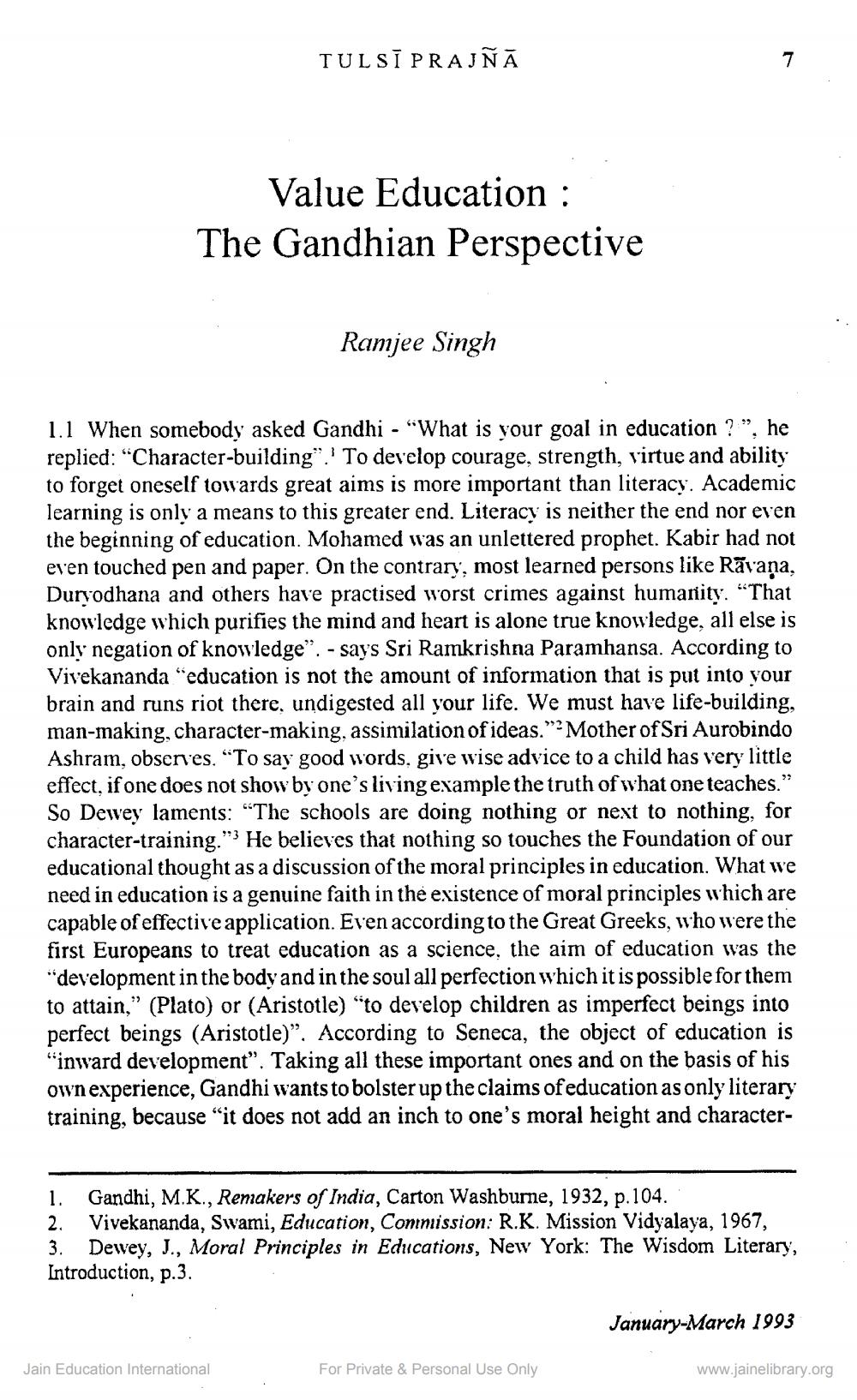________________
TU L SI PRAJA
Value Education : The Gandhian Perspective
Ramjee Singh
1.1 When somebody asked Gandhi - "What is your goal in education ?", he replied: "Character-building"? To develop courage, strength, virtue and ability to forget oneself towards great aims is more important than literacy. Academic learning is only a means to this greater end. Literacy is neither the end nor even the beginning of education. Mohamed was an unlettered prophet. Kabir had not even touched pen and paper. On the contrary, most learned persons like Rāvana, Duryodhana and others have practised worst crimes against humanity. "That knowledge which purifies the mind and heart is alone true knowledge, all else is only negation of knowledge”. - says Sri Ramkrishna Paramhansa. According to Vivekananda "education is not the amount of information that is put into your brain and runs riot there, undigested all your life. We must have life-building, man-making, character-making, assimilation of ideas." Mother of Sri Aurobindo Ashram, observes. "To say good words. give wise advice to a child has very little effect, if one does not show by one's living example the truth of what one teaches." So Dewey laments: "The schools are doing nothing or next to nothing, for character-training." He believes that nothing so touches the Foundation of our educational thought as a discussion of the moral principles in education. What we need in education is a genuine faith in the existence of moral principles which are capable of effective application. Even according to the Great Greeks, who were the first Europeans to treat education as a science, the aim of education was the "development in the body and in the soul all perfection which it is possible for them to attain," (Plato) or (Aristotle) "to develop children as imperfect beings into perfect beings (Aristotle)". According to Seneca, the object of education is "inward development”. Taking all these important ones and on the basis of his own experience, Gandhi wants to bolster up the claims of education as only literary training, because it does not add an inch to one's moral height and charact
1. Gandhi, M.K., Remakers of India, Carton Washburne, 1932, p.104. 2. Vivekananda, Swami, Education, Conmission: R.K. Mission Vidyalaya, 1967, 3. Dewey, J., Moral Principles in Educations, New York: The Wisdom Literary, Introduction, p.3.
January-March 1993
Jain Education International
For Private & Personal Use Only
www.jainelibrary.org




